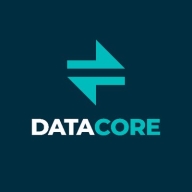


Red Hat Ceph Storage and DataCore Swarm compete in the storage solutions category. Red Hat Ceph is perceived as having the upper hand in cost-effectiveness and support quality, while DataCore Swarm is recognized for robust features catering to specific needs.
Features: Red Hat Ceph Storage is known for its scalability, integration capabilities, and suitability for enterprise deployments requiring flexibility. DataCore Swarm focuses on content lifecycle management, high-performance capacity, and media-rich environment optimization. The key difference is Red Hat's adaptability versus DataCore's media efficiency.
Ease of Deployment and Customer Service: Red Hat Ceph Storage employs an open-source deployment model demanding technical expertise, with customer service noted for structured enterprise support. DataCore Swarm is noted for a straightforward deployment model and strong media management support, providing tailored customer service for complex media handling.
Pricing and ROI: Red Hat Ceph Storage is more cost-effective initially, offering favorable ROI for large-scale storage via reduced operational costs. DataCore Swarm, with a higher initial investment, promises ROI through enhanced performance and media-driven benefits. The distinction lies in Red Hat's lower setup costs versus DataCore's long-term performance returns.
| Product | Market Share (%) |
|---|---|
| Red Hat Ceph Storage | 16.7% |
| Pure Storage FlashBlade | 5.6% |
| DataCore Swarm | 0.9% |
| Other | 76.80000000000001% |



| Company Size | Count |
|---|---|
| Small Business | 11 |
| Midsize Enterprise | 11 |
| Large Enterprise | 21 |
| Company Size | Count |
|---|---|
| Small Business | 13 |
| Midsize Enterprise | 4 |
| Large Enterprise | 15 |
FlashBlade is the industry’s most advanced scale-out storage for unstructured data, powered by a modern, massively parallel architecture to consolidate complex data silos (like backup appliances and data lakes) and accelerate tomorrow’s discoveries and insights.
Swarm provides a platform for data protection, management, organization and search at massive scale. You no longer need to migrate data into disparate solutions for long-term preservation, delivery and analysis. Consolidate all files on Swarm, find the data you are looking for quickly, and reduce total cost of ownership by continuously evolving hardware and optimizing use of your resources.
We monitor all File and Object Storage reviews to prevent fraudulent reviews and keep review quality high. We do not post reviews by company employees or direct competitors. We validate each review for authenticity via cross-reference with LinkedIn, and personal follow-up with the reviewer when necessary.